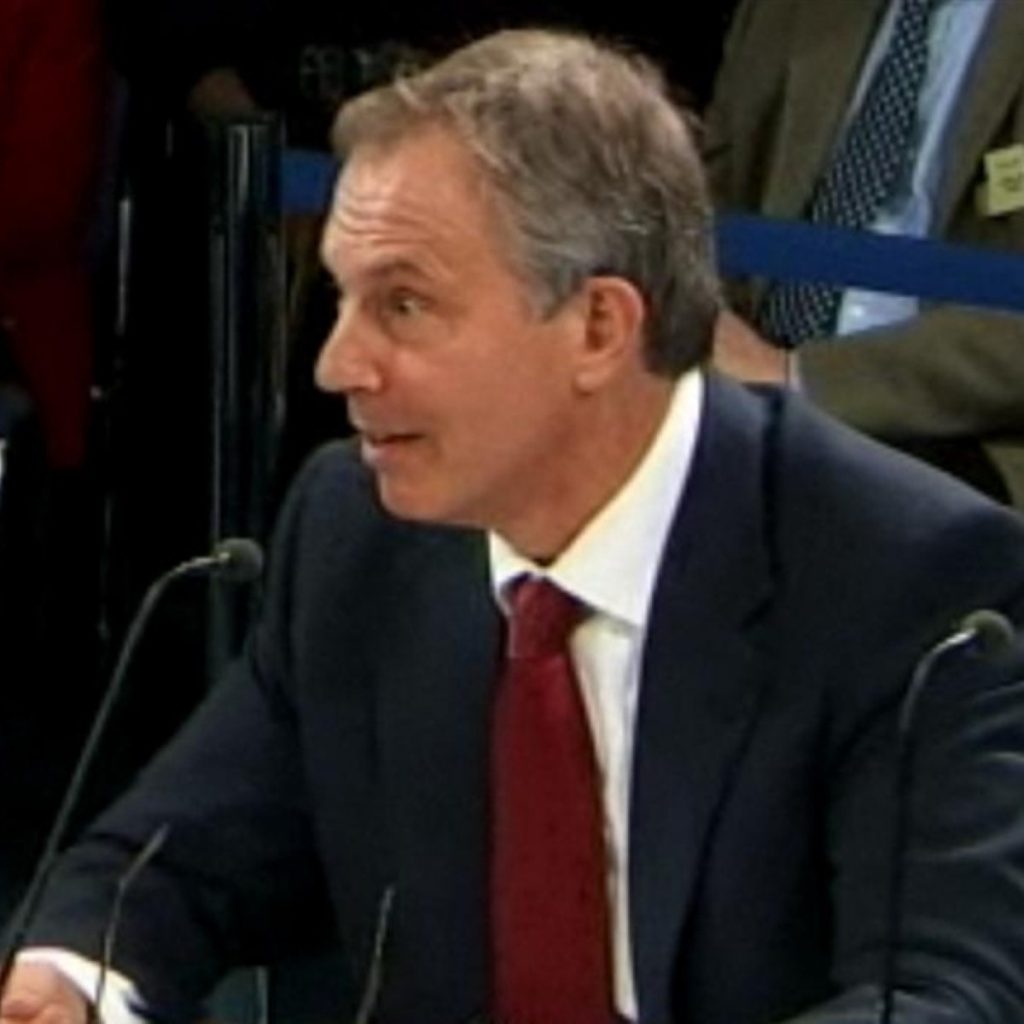Blair admits Iraq regrets
Tony Blair used his final appearance at the Iraq inquiry to abandon his unrepentant stance, admitting regret at the loss of life in the conflict.
The statement prompted the only heckle of the four-and-a-half hour session, when a female member of the audience shouted that his comments came “too late”.
Mr Blair’s January 2010 appearance ended with him stating that he felt “responsibility, but not regret” at his involvement in Iraq.


“I took that as a question about the decision to go to war,” he said.
“That was taken as my meaning that I had no regrets about the loss of life and that was never my meaning or my intention. I wanted to make that clear that of course I regret deeply and profoundly the loss of life.”
The sudden expression of contrition was all the more surprising after a session in which Mr Blair offered a more forthright defence of his decision-making.
The man who led Britain into the military coalition which ousted Saddam Hussein from Iraq in 2003 was especially robust when it came to the need to tackle Iran, which he said needed to be viewed in the same context as the threat from al-Qaida.
He called the Middle Eastern state “negative” and “destabilising” and called on western countries to get out of their “wretched” attitude that “we are causing” the Iranian attitude.
“How do you deal with al-Qaida? You can’t deal with them unless you deal with the bigger picture, which in my view includes Iran,” Mr Blair said.
“Iran took a strategic position and has gone down a path where it believes it is an existential threat to this theocracy to have progress… in the region.”
He said Iranian officials would continue their current behaviour, including the development of a nuclear arsenal, “unless they are met with the requisite determination and if necessary force”.
Much of the session concentrated on communications with the United States in the lead-up to the invasion.
Mr Blair backed the civil service’s decision to prevent secret memos between himself and US president George Bush being made public. Inquiry chairman Sir John Chilcot told the former prime minister that his “disappointment” with Cabinet secretary Sir Gus O’Donnell’s decision continued.
But the man who led Britain into the military coalition which ousted Saddam Hussein from Iraq in 2003 backed his right to secrecy, saying: “I think it is extremely important that the British prime minister and the American president are able to communicate in confidence. But I am very happy to tell you the basis of what I said.”
In his concluding remarks Mr Blair called on critics of his subservient position in the relationship with the US to be “realistic”.
“When we’re in a situation like this we’re going to have to accept it’s going to be difficult because there will be situations where America is determined to go its own way,” he said.
Mr Blair insisted his goal in communications with US president George Bush was to persuade the Americans that they should follow the UN route rather than immediately resort to military action.
“I was trying to get them very substantially to amend their position. Now their position, with huge opposition… was going to be ‘we’re going to put this back in the lap of the United Nations’,” he said.
But he delivered a striking defence of his loyal approach to the US: “I did this because I believed in it. Whatever phrasing I used, I accepted entirely I was going to be with America in handling this.”
He added that he pressed that it should be handled through the UN route rather than otherwise. He added: “And in the end that is what he agreed to do.”
Mr Blair praised Mr Bush, calling resolution 1441 a “huge compromise on his part”.
“Once it became clear that Saddam had not changed and was carrying on in the same way, I think it would have been profoundly wrong to go back to the Americans and say ‘I know we said we would be with you on this, but now we’re not’.”
His comments came after earlier questions over the extent to which Tony Blair’s Cabinet were informed about key Iraq decisions appeared to rattle the former prime minister.
A lack of discussion on Iraq in Cabinet meetings and a failure to show the Cabinet policy papers were cited by Sir John Chilcot’s panel as areas of concern.
Mr Blair responded by insisting that much of the government’s position was publicly known.
“It was literally the issue the entire time,” he insisted.
“The issue was being canvassed in Cabinet in the sense that the facts weren’t really in dispute.”
Other documents which were released earlier this week showed Mr Blair repeatedly downplayed and ignored legal advice warning against the ousting of Saddam Hussein.
The Iraq inquiry will continue taking evidence and is already behind its original aim of publishing its report around now. Sir John said earlier this week its final report will be produced “as soon as it is able”.












